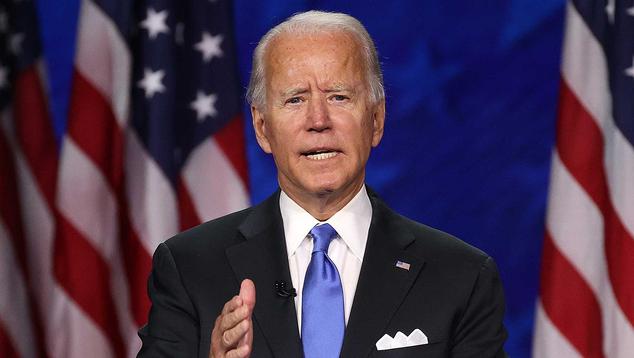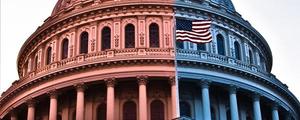Story Highlights
- One of Gallup’s lowest second-year averages; only Trump’s was lower
- Latest job approval rating also 41%
- 5% average Republican approval lowest for a president from opposition party
WASHINGTON, D.C. -- President Joe Biden averaged 41% job approval during his second year in office, which spanned Jan. 20, 2022, through Jan. 19, 2023. Among post-World War II presidents elected to their first term, only Donald Trump had a lower second-year average, but just barely, at 40.4%. Many other recent presidents, including Jimmy Carter, Ronald Reagan, Bill Clinton and Barack Obama, had approval ratings below 50% in their second years. John Kennedy and George W. Bush were the most popular second-year presidents, averaging better than 70% job approval.
Biden’s job approval rating varied little during his second year in office. In fact, each rating was between 40% and 42%, with the exceptions of a 38% reading in July and a 44% measurement in August. The lower score in July came after gas prices reached a record high and as inflation, more broadly, continued to be high. The August score came during an eventful month: Biden secured congressional support for a major domestic policy bill; the economy showed signs of improvement because of a strong jobs report and the easing of gas prices and inflation; the U.S. killed a major terrorist figure; and political attention shifted to Trump after an FBI raid seized classified documents from his residence.
Biden’s job approval rating remains at 41% in the latest poll, from Jan. 2-22. This was conducted as Biden became embroiled in an investigation similar to Trump’s after a series of classified documents were found in searches of Biden’s homes and offices. The existence of these documents became public on Jan. 9, during the middle of the field period for the latest survey. However, the lack of change in Biden’s approval suggests the document situation has not yet harmed his public standing.
Recent ratings for Biden contrast with those at the beginning of his term, between January and June 2021, when majorities approved of him. A summer 2021 COVID-19 surge, the troubled U.S. withdrawal from Afghanistan, and rising inflation contributed to a loss of support for the president in the late summer of 2021. His job approval ratings have held near 40% since then.
Biden averaged 48.9% job approval during his first year in office. Typically, presidents have had lower approval ratings in their second year than in their first year. The drop of nearly eight percentage points for Biden, however, is one of the larger declines for the 11 elected presidents who have served over the past eight decades. Carter, Reagan and Obama had larger drops than Biden did, all more than 10 percentage points.
Second-Year Ratings for Biden Tie for Most Polarized by Party
During Biden’s second year in office, an average 83% of Democrats, 37% of independents and 5% of Republicans approved of the job he was doing. Each of these groups' averages was lower than in Biden’s first year, including an eight-point drop among Democrats, nine points among independents and three points among Republicans.
The 78-point gap between Republican and Democratic approval of Biden in his second year essentially ties Trump’s 79 points as the largest for a president’s second year in office. Party gaps for all prior presidents were at least 10 points lower.
The larger gaps for Biden and Trump than for prior presidents are mainly the result of extremely low approval from supporters of the opposition party -- 8% for Trump among Democrats and 5% for Biden among Republicans during their second years in office.
Presidents before Trump and Biden who had relatively low approval ratings in their second years, such as Carter, Reagan, Clinton and Obama, managed to get approval ratings in the teens or 20s from the other party’s supporters. The more popular second-year presidents, including Dwight Eisenhower, Kennedy, and the elder and younger Bush, had approval near or above the majority level from the other side.
In fact, Biden’s 5% approval from Republicans is the lowest Gallup has measured for any president in any year of their presidency, dating back to 1953 when it first kept records of job approval by political party group. The prior low, 6% approval among Democrats, was shared by Republican Presidents George W. Bush in 2008 and Trump in 2016.
All told, Biden’s second year ranks as the fifth-most politically polarized of all presidential years. Biden and Trump hold all of the top five positions, and the eight most recent presidential years -- Obama’s last two years, Trump’s four years, and Biden’s first two years -- account for eight of the 10 most polarized years all-time.
Biden’s first-year approval ratings had a slightly larger party gap (83 points) than his second-year ratings, mostly because of his higher first-year ratings among Democrats. The decline in his year two ratings among Democrats led to a smaller party gap.
Bottom Line
Biden’s public support in his second year was highly stable, rarely straying more than a point from the 41% he averaged during the year. In many ways, Biden’s approval ratings are similar to those of his immediate predecessor, Trump. Both presidents’ ratings have been characterized by extreme and consistent party gaps, which has led to little variation in their overall job approval, except when independents’ or their own party’s supporters’ judgments changed, usually modestly.
Consistently high support from their own party’s supporters has also kept Biden’s and Trump’s approval “floors” from getting too low, as neither has descended to the depths reached by Presidents Harry Truman, Richard Nixon, Carter, George H.W. Bush and George W. Bush amid extremely challenging national and economic conditions or personal scandal.
The main thing that distinguishes Trump’s and Biden’s public support is that Biden had the traditional honeymoon period of above-average ratings early in his presidency, while Trump did not.
To stay up to date with the latest Gallup News insights and updates, follow us on Twitter.
Explore President Biden's approval ratings and compare them with those of past presidents in the Gallup Presidential Job Approval Center.
Learn more about how the Gallup Poll Social Series works.




